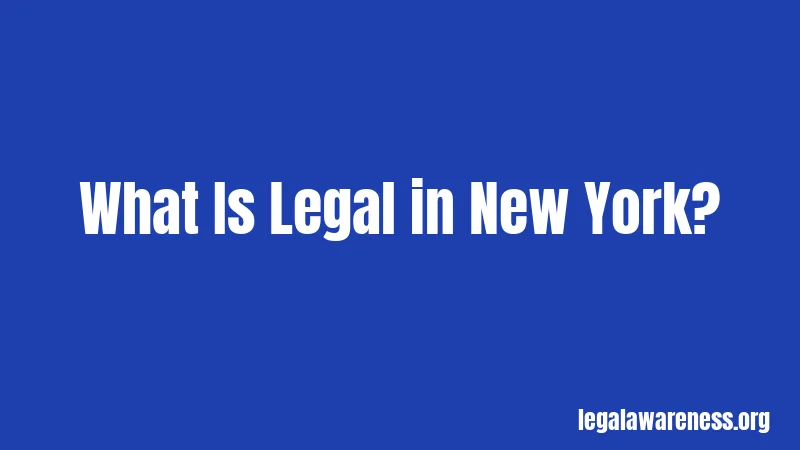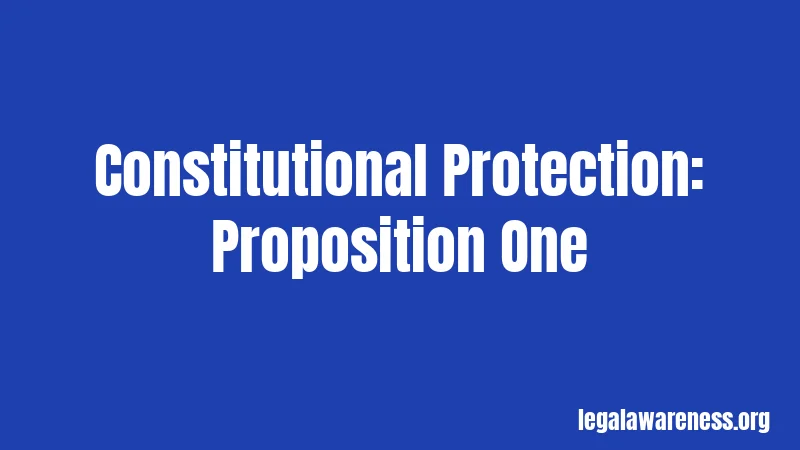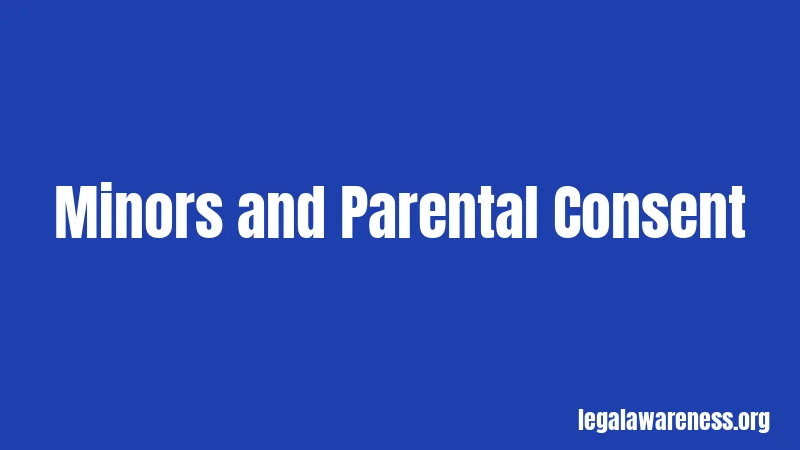Abortion Laws in New York (2026): Your Rights Are Now in the Constitution
Most people don’t realize how protected abortion access is in New York. Seriously. While other states have banned or restricted abortion, New York has done the opposite. The state has strengthened protections at every turn.
In November 2024, voters approved Proposition One. This added abortion rights directly into the New York State Constitution. That’s a big deal. It means these protections can’t be easily taken away. Let’s break down exactly what this means for you.
What Is Legal in New York?

Here’s the deal. Abortion is legal in New York up to 24 weeks of pregnancy. That’s about six months. No questions asked.
After 24 weeks, abortion is still legal in certain situations. If the pregnancy isn’t viable, you can get an abortion. If your life or health is at risk, you can get one too. And health includes both physical and mental health. Your doctor determines if these situations apply to you.
New York first made abortion legal way back in 1970. That was three years before Roe v. Wade. So New York has been protecting this right longer than almost anywhere else.
The Reproductive Health Act
In 2019, New York passed the Reproductive Health Act. This law made some important changes.
First, it moved abortion out of the criminal code. Before this law, abortion was technically listed under homicide statutes. Pretty wild, right? Now it’s treated like what it is—a medical procedure.
Second, the law expanded who can perform abortions. Doctors aren’t the only option anymore. Physician assistants, nurse practitioners, and licensed midwives can provide abortion care too. This helps people in rural areas or communities without many doctors.
Third, the law made clear that abortion is a fundamental right in New York. It protected the rights established in Roe v. Wade at the state level. When the Supreme Court overturned Roe in 2022, New York’s law stayed strong.
Constitutional Protection: Proposition One

Okay, pause. This part is important.
In November 2024, New York voters approved a constitutional amendment. It went into effect on January 1, 2025. This wasn’t just about abortion. It was a sweeping anti-discrimination measure.
The amendment protects against discrimination based on pregnancy, pregnancy outcomes, and reproductive healthcare. It also protects based on sex, sexual orientation, gender identity, and gender expression.
What does this mean for you? Your right to abortion is now in the state constitution. It’s not just a regular law anymore. Changing the constitution is much harder than changing a law. This gives abortion rights extra protection.
Insurance Coverage
Wondering if your insurance covers abortion? In New York, the answer is almost certainly yes.
New York requires all state-regulated private insurance plans to cover abortion services. Most of the time, you won’t pay a copay or deductible. Coverage includes both in-clinic abortions and medication abortions.
Medicaid also covers abortion in New York. If you’re pregnant and live in New York, you might qualify for Medicaid. This is true regardless of your immigration status. Medicaid enrollment can sometimes happen at your doctor’s office on the same day as your appointment.
Some religious employers don’t have to include abortion coverage. But here’s the thing—if your employer is one of these, your insurer must still offer you coverage at no cost.
Minors and Parental Consent

This one surprises a lot of people. In New York, minors do not need parental permission to get an abortion.
If you’re under 18 and can understand the risks and benefits of the procedure, you can consent on your own. You don’t need to tell your parents. You don’t need their approval. Your healthcare provider can’t tell your parents either.
This applies to other reproductive health services too. Birth control, prenatal care, and STI testing all work the same way. Your privacy is protected.
Medication Abortion
Medication abortion is now the most common way to end a pregnancy. In New York, it’s safe, legal, and increasingly accessible.
Here’s how it works. You take two medications. First is mifepristone. Then, 24 to 48 hours later, you take misoprostol. Together, these medications end the pregnancy and empty the uterus. It’s similar to a miscarriage.
Medication abortion can be used up to 10 to 11 weeks into pregnancy. You can get these medications from a doctor’s office, clinic, or through telehealth. Some major pharmacies now dispense mifepristone too. Walgreens started offering it in New York in March 2024.
In June 2024, the U.S. Supreme Court ruled that mifepristone remains available. The court found that groups trying to restrict the drug didn’t have the right to sue. So for now, medication abortion access is secure.
Telehealth Options
Can’t make it to a clinic? Telehealth might be an option.
New York allows providers to prescribe medication abortion through video visits. You meet with a healthcare provider online. They send the prescription to a pharmacy, or the medication comes by mail. It’s that simple.
This is especially helpful for people in rural areas. It’s also useful for anyone who has trouble taking time off work or arranging childcare.
The Shield Law: Protecting Providers and Patients
Now, here’s where things get interesting. New York has become a safe haven for abortion care. People travel from other states to get abortions here. And New York protects both patients and providers.
The Shield Law does several things. It prevents New York law enforcement from cooperating with other states trying to prosecute abortion providers. It blocks extradition of doctors who provide legal abortion care. It stops courts from enforcing out-of-state judgments against abortion providers.
In January 2025, this law was put to the test. A New York doctor prescribed abortion medication to a patient in Louisiana through telehealth. Louisiana indicted her on felony charges and requested extradition. Governor Hochul refused. The Shield Law worked exactly as intended.
New York also expanded these protections in April 2025. Now providers can request that pharmacies print only their practice name on prescription labels. Not their personal name. This helps protect doctors from harassment and targeting.
Finding an Abortion Provider
Need to find a provider? You have several options.
Planned Parenthood has locations throughout New York. You can visit their website or call to schedule an appointment.
The NYC Abortion Access Hub is another resource. You can call 877-NYC-AHUB (877-692-2482). They can connect you with providers who accept your insurance or offer financial help.
AbortionFinder.org has a directory of verified abortion providers. I Need an Abortion is another simple resource with up-to-date information.
Financial Help
Worried about cost? Don’t be. There are resources available.
If you have Medicaid, abortion is covered. If you have private insurance through New York, it’s covered too.
If you don’t have insurance or face high costs, abortion funds can help. The New York Abortion Access Fund (NYAAF) provides financial assistance. You can call them at 212-252-4757.
Need help with travel or lodging? The Brigid Alliance provides support with transportation, food, lodging, and childcare. Haven Coalition helps with overnight lodging for people traveling to NYC.
Confidentiality Protections
Privacy matters. New York takes it seriously.
Healthcare providers cannot share your medical records without your permission. This includes information about abortion, birth control, and STI testing. They can’t tell your partner. They can’t tell your parents. They can’t tell your employer.
Your employer also can’t access information about your reproductive health decisions. They can’t discriminate against you for having an abortion or planning to have one.
Abortion providers and their staff can enroll in an address confidentiality program. This protects them from harassment and threats.
Fake Clinics: What to Watch Out For
Honestly, this is something everyone should know about.
Crisis pregnancy centers, sometimes called limited-service pregnancy centers, look like abortion clinics. But they’re not. Their goal is to talk you out of having an abortion.
These centers often advertise asking if you’re “pregnant, scared, and need help.” They might be located near real abortion clinics. They don’t offer abortion services. Some spread misinformation, including claims that medication abortion can be “reversed.” This is not proven or accepted by major medical groups.
Before sharing any personal information, ask directly: “Do you provide abortion services?” If they don’t give you a straight answer, you might be at a fake clinic. You’re free to leave.
Recent Developments
New York keeps expanding protections. In January 2025, the New York State Senate advanced new legislation. This package includes training programs for healthcare providers. It includes privacy protections for health data. It requires practical support like transportation and lodging for people accessing abortion care.
SUNY and CUNY students now have access to medication abortion on campus. This passed in 2023.
Pharmacists can now give contraceptive injections. Governor Hochul signed a standing order allowing pharmacists to dispense hormonal contraception without a prescription.
What Happens If Federal Law Changes?
Some people worry about a federal abortion ban. Congress has considered bills that would restrict abortion nationwide. So far, none have passed.
If federal law ever banned abortion, it would create a complex legal situation. New York’s constitutional amendment provides strong protection. But federal law generally overrides state law when they conflict.
For now, abortion remains legal and protected in New York. The state has made clear it will fight any federal restrictions.
Frequently Asked Questions
Can I get an abortion in New York if I live in another state? Yes. New York has no residency requirement. Anyone can come to New York for abortion care, regardless of where they live.
How much does an abortion cost without insurance? Costs vary by provider and how far along the pregnancy is. Medication abortion typically costs between $500 and $800. In-clinic procedures can range from $600 to over $2,000 later in pregnancy. Financial assistance is available.
Can I get an abortion in New York if I’m undocumented? Yes. Immigration status doesn’t affect your right to abortion in New York. Pregnant non-citizens can also qualify for Medicaid regardless of immigration status.
Will my parents find out if I’m a minor? Not unless you tell them. Healthcare providers cannot share information about your abortion with your parents without your permission.
Can I take time off work for an abortion? Your employer cannot discriminate against you for reproductive health decisions. However, whether you have paid leave depends on your workplace policies.
Final Thoughts
New York has some of the strongest abortion protections in the country. The right to abortion is now in the state constitution. Insurance must cover it. Minors don’t need parental consent. Providers are protected from out-of-state prosecution.
If you need abortion care in New York, you have options. Don’t let cost or confusion stop you from getting the care you need. Resources are available. And your privacy is protected.
Stay informed. Know your rights. And if you’re unsure about anything, reach out to a healthcare provider or one of the resources listed above.
References
- New York State Government. “Abortion in New York State: Know Your Rights.” https://www.ny.gov/programs/abortion-new-york-state-know-your-rights
- New York State Attorney General. “Abortion is legal and protected in New York State.” https://ag.ny.gov/publications/abortion-legal-and-protected-new-york-state
- New York Public Health Law § 2599-BB. https://law.justia.com/codes/new-york/pbh/article-25-a/2599-bb/
- NYCLU. “What you Need to Know about the Reproductive Health Act.” https://www.nyclu.org/resources/campaigns-actions/campaigns/what-you-need-know-about-reproductive-health-act
- New York State Department of Health. “Abortion Services.” https://www.health.ny.gov/health_care/abortion_services/
- Center for Reproductive Rights. “New York.” https://reproductiverights.org/maps/state/new-york/
